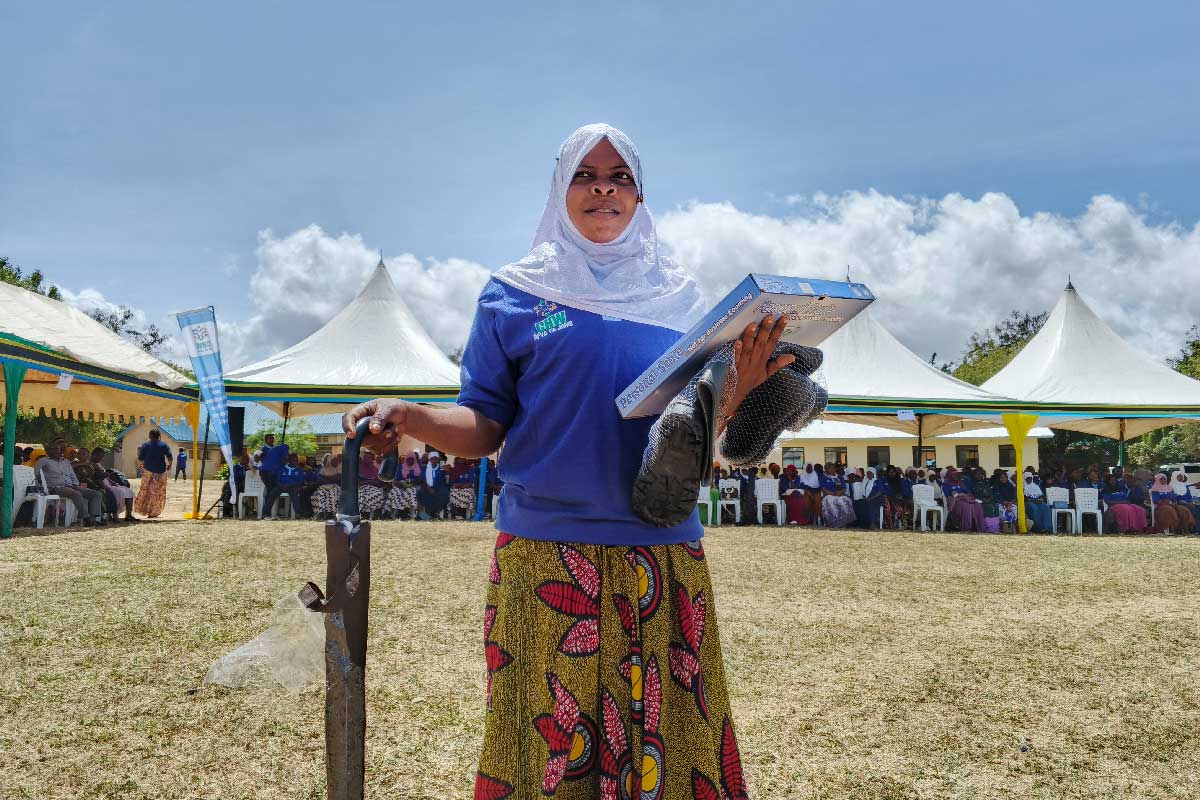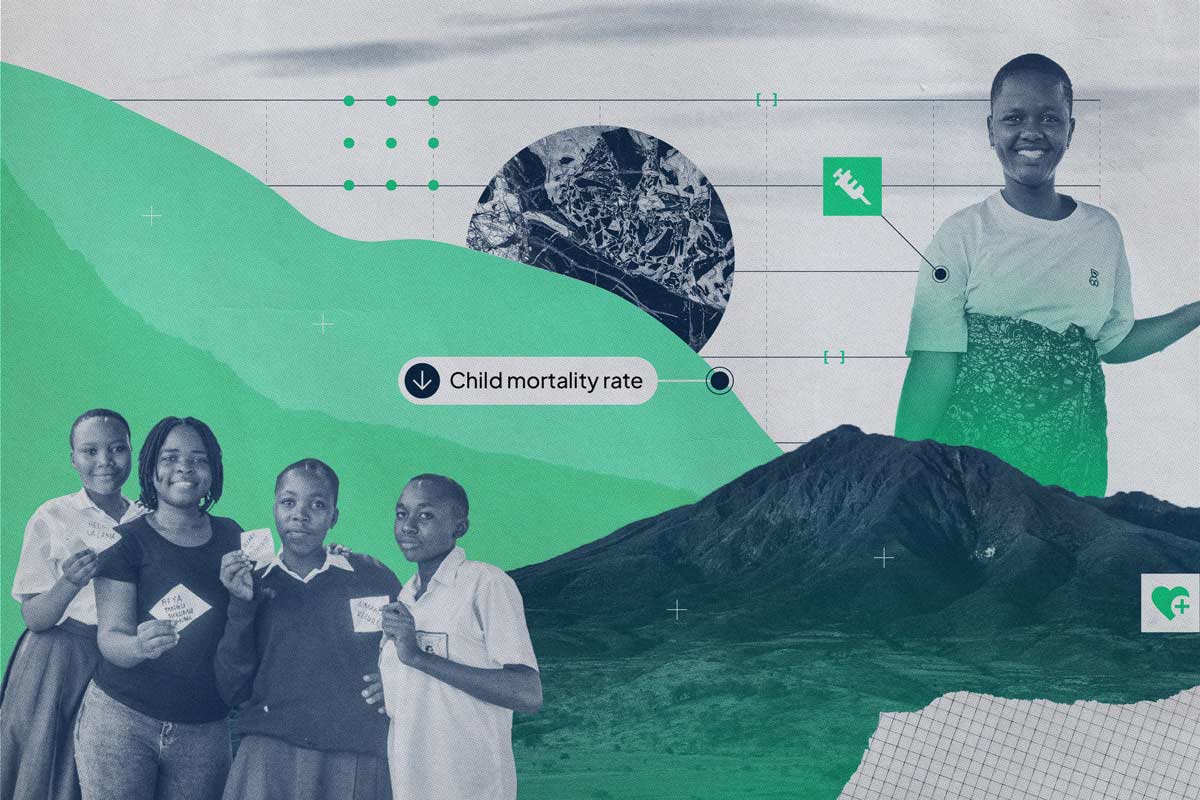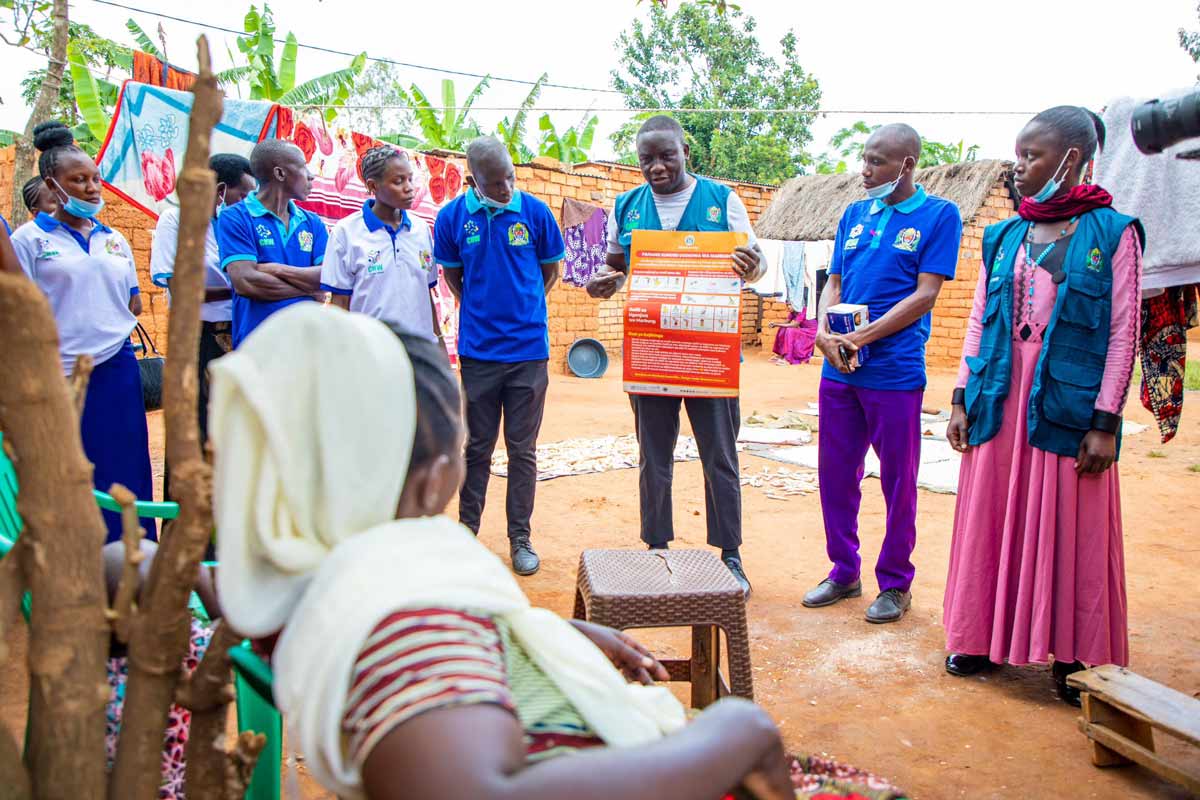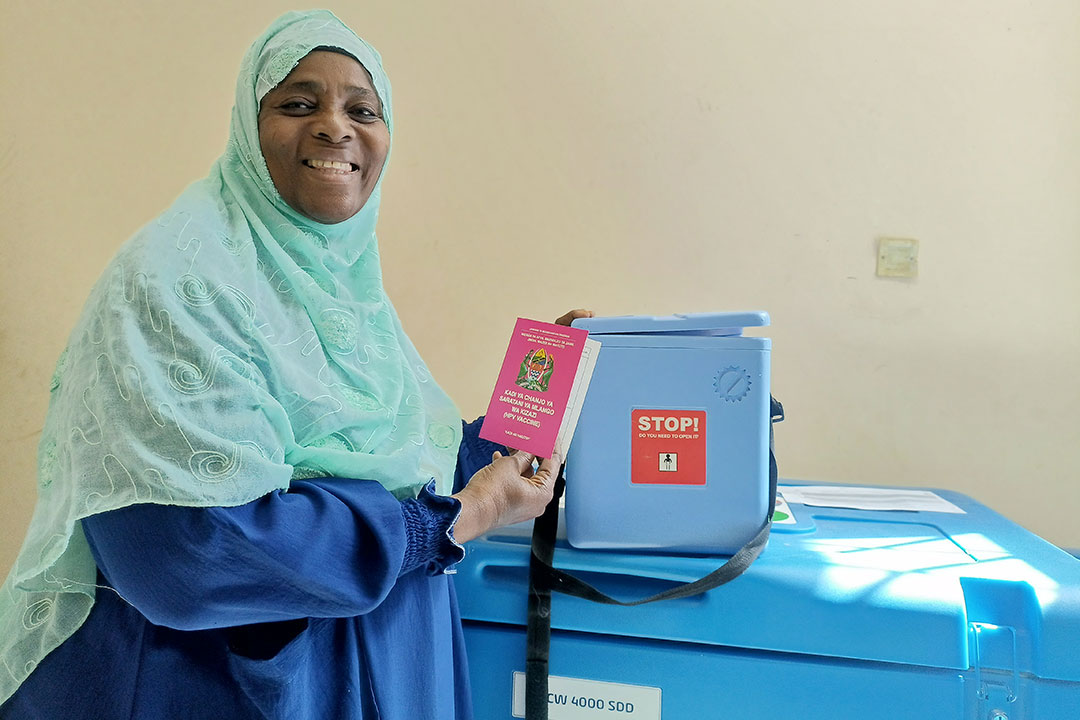How Tanzania leapfrogged into the lead on COVID-19 vaccination
In January 2022, just 2.8% of Tanzania was vaccinated against COVID-19. A year and a half later, the majority of Tanzanians have completed their 'primary series'. VaccinesWork asked experts what made all the difference.
- 5 July 2023
- 6 min read
- by Syriacus Buguzi
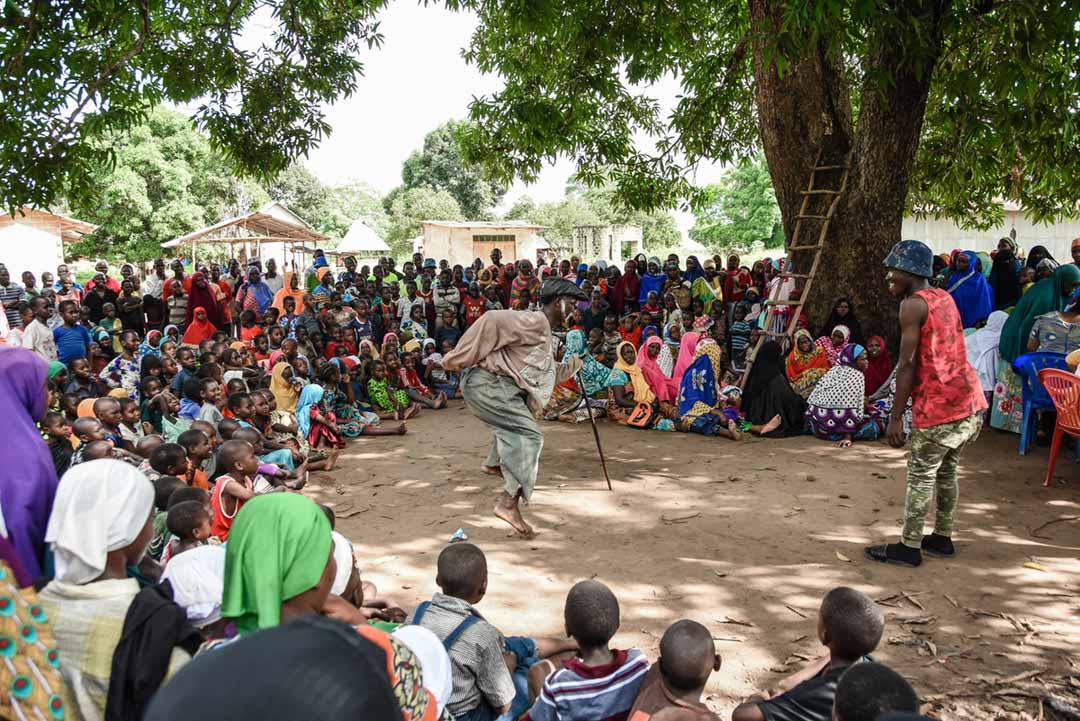
When the world's COVID-19 vaccine roll-out kicked off in 2021, Tanzania held off on joining the programme, and in mid-January 2022, still lagged behind many of its neighbours. But a year and a half later, the country has leapfrogged many of its African neighbours in terms of its COVID-19 coverage.
It was the sound of singeli music that caught the attention of Henry Mwakyusa, a hawker, prompting him to run behind the slow-moving van to its destination. “…and that’s how I ended up receiving a COVID-19 vaccine,” he says.
"From a poor coverage of 2.8% of the total population by mid-January 2022, Tanzania recorded an exponential increase to 51% as at April 2023," the World Health Organization (WHO) said in a May statement, lauding the country's "dramatic achievement". Tanzania topped the list of 34 African countries with the highest vaccination coverage in 2022.
By May 2023, 52.5% of Tanzanians had completed a primary series of COVID-19 vaccination. How did they do it?
No vaccinations without vaccines
Dr Zabulon Yoti, WHO's Tanzania Country Director, attributed the rapid increase in COVID-19 vaccination to "heightened political commitment at the national, regional and district levels."
International collaborations also proved indispensable. Forty-seven million doses had been received in country as of May, with 61% of those doses coming from the COVAX Facility, and a further 11% from the African Union's AVATT. Eighty-three percent of those doses have been administered – a considerable achievement for a country that came from a starting point of widespread hesitancy.
Leading by example
The shift of policy to embrace the science of COVID-19, led by the country's President Samia Suluhu Hassan, who chose to receive her first vaccine on TV in order to boost confidence in the roll-out, were vital to the rapid scale-up of vaccination across the country, researchers say.
"The presidential lead was crucial to harmonise efforts for a multi-disciplinary approach from government and non-governmental departments, media campaigns and house-to-house visits for vaccination," says Professor Sayoki Mfinanga, the Chief Research Scientist at the National Institute for Medical Research (NIMR)
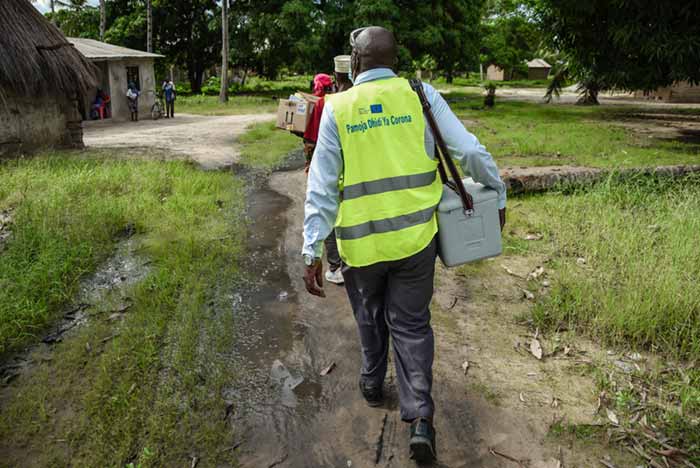
Photo Courtesy of Benjamin Mkapa Foundation/ Photographer: Ericky Boniface
"[The] initial vaccine uptake was extremely low due to scepticism," reads an article in the Lancet, co-authored by Mfinaga. Research published in September 2021 found that two thirds of Tanzanian health care professionals were hesitant of the COVID-19 vaccine, which the researchers suggested could be predictive of low uptake in the general population.
Easy access
To curb misinformation and encourage a majority of people to accept the vaccines, the government decided to embark on a mass education campaign. This, according to public health experts, was implemented alongside a plan to "de-medicalise" the delivery of vaccines, taking them to communities – going beyond health facilities – targeting people at music festivals, sports matches, door-to-door visits and reaching out to people in their workplaces.
Have you read?
"Vaccine hesitancy is a continuum; a lot of people will get vaccinated if it is easy for them to do so," says Dr Mahesh Swaminathan, the Country Director of CDC Tanzania. Swaminathan highlights how his organisation worked with public health authorities to make vaccination convenient, "so people could get vaccinated without having to trade between life priorities and/or travel far to get vaccinated".
In supporting the COVID-19 vaccination drive, the CDC took advantage of the existing infrastructure provided under the US President's Emergency Plan for AIDS Relief (PEPFAR) in Tanzania. "The success of leveraging existing PEPFAR infrastructure provided a cost-effective approach that allowed CDC to scale up vaccination to the general population reaching more than 500,000 people in one month,'' says Dr Swaminathan.
A big, bold public heads-up
Derrick Sim, Acting Managing Director of the COVAX Facility, commended Tanzania for having "developed some highly innovative approaches on how to roll out COVID-19 vaccines and at the same time, catch up on routine immunisation programmes". One of the cited approaches was the mobilisation of communities for vaccine uptake through the use of taxi operators and influencers through a local imitative known as Access Challenge.
“Vaccine hesitancy is a continuum; a lot of people will get vaccinated if it is easy for them to do so.”
– Dr Mahesh Swaminathan, Country Director of CDC Tanzania
At the height of the COVID-19 vaccination campaigns in December 2022, Henry Mwakyusa a 30-year-old resident of Kibiti in Tanzania's Pwani Region, recalls how vans fitted with PA systems traversed the streets in his area, branded with the slogan: 'Bega kwa bega, ujanja ni kuchanja.' That loosely translates as 'Shoulder to shoulder, the big deal is to vaccinate.'For Mwakyusa, a hawker, it was the sound of singeli, a heady, popular dance music genre from Dar es Salaam, blaring from PA systems that caught his attention, prompting him to run behind the slow-moving van to its destination.
"…and that's how I ended up receiving a COVID-19 vaccine," he says, recalling how multitudes of people like him thronged a music festival which had been organised by the Ministry of Health as part of the nationwide COVID-19 vaccination drive.
"I saw a friend who had just received the vaccine at the event. I felt like it was time for me to be vaccinated as well. But I was still in fear of the vaccines. Eventually I received it," he says.
"Community engagement influenced by local and religious leaders enhanced the vaccine acceptance and uptake,'' says Dr Victor Mtaki, an epidemiologist at the United Nations Programme on HIV/AIDS (UNAIDS).
Dr Mtaki attributes the success of COVID-19 vaccination to "efficient vaccine distribution and cold chain logistics for storage and distribution [that] ensured the availability [of vaccines] to all eligible candidates."
“Going forward, we must learn how to communicate science to ordinary people,”
– Dr Elisha Osati, physician and ‘CoronaSwahili’ project leader
But he says, "There are lessons to be learnt. The nationwide campaign should have started earlier, because vaccines arrived at a time when misinformation was widespread, so an early campaign to address vaccine hesitancy could have played a better role."
Communities that could have otherwise missed out on COVID-19 vaccines were reached through strategies employed by non-governmental organisations in collaboration with local government authorities.
"The effective engagement of community healthcare workers and leaders was crucial in sensitising and identifying underserved populations, providing invaluable support to healthcare providers leading the vaccination drive," says Dr Ellen Senkoro, Chief Executive Officer of the Benjamin Mkapa Foundation (BMF).
Dr Elisha Osati, a physician specialising in respiratory infections at Muhimbili National Hospital, says, "There were people who did not have access to adequate public health information about COVID-19 vaccines because of language barrier.
"Having been involved in translating COVID-19 information to the communities who predominantly speak Kiswahili, I can attest how challenging it was to persuade people in rural areas to get vaccinated,'' he says.
"Going forward, we must learn how to communicate science to ordinary people," recommends Osati, who led a digital science communication project dubbed CoronaSwahili to reach local audiences with accurate information about COVID-19 vaccines.
